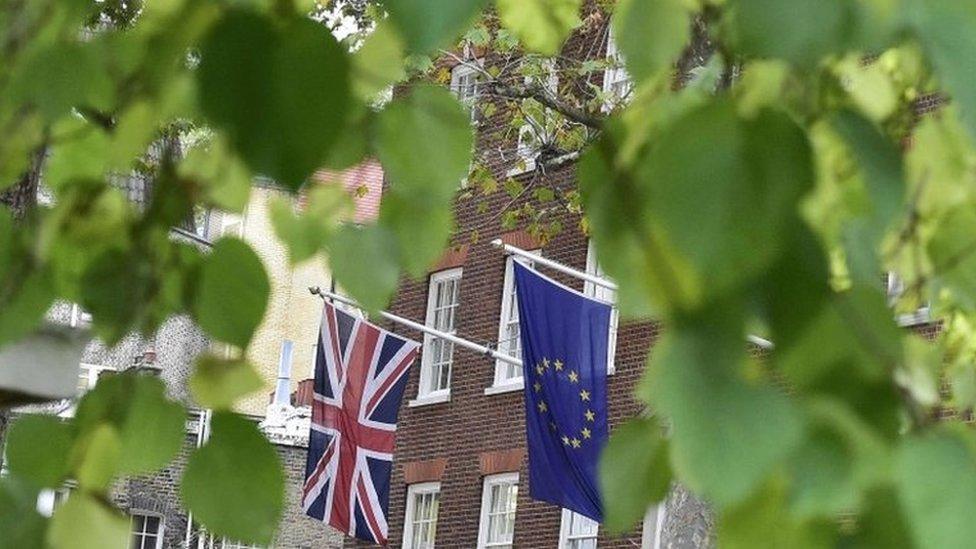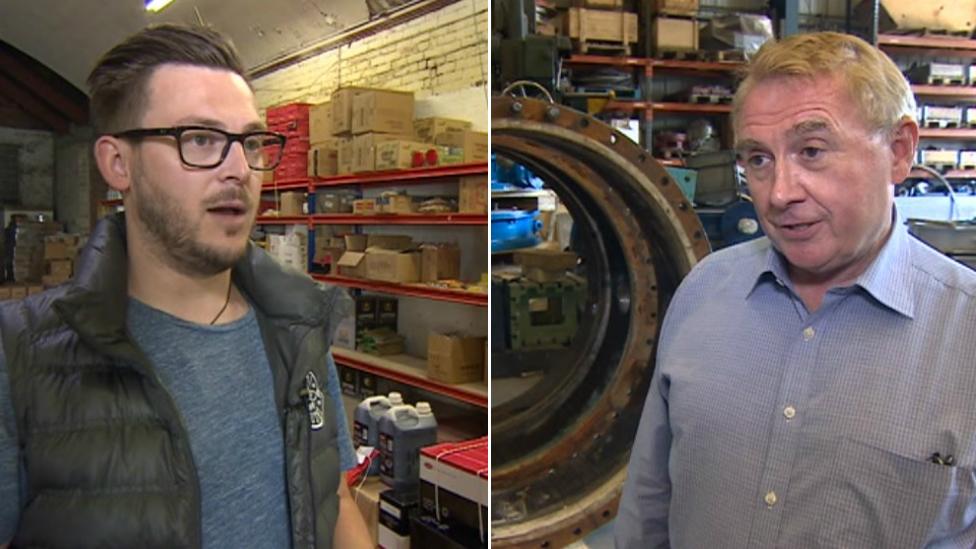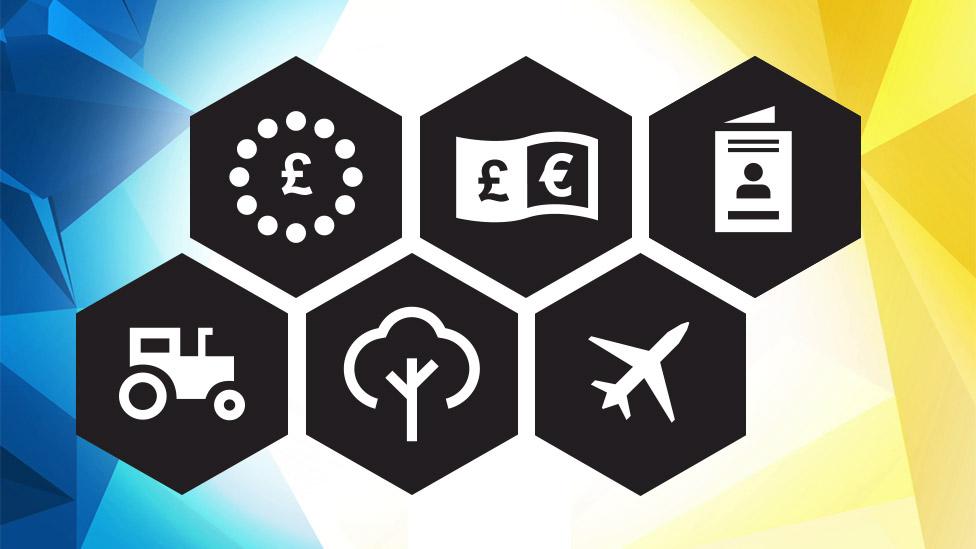EU referendum: Do region's jobs and trade depend on EU?
- Published

Out of the 2.5m jobs that exist in the Yorkshire and Humber region, around 10 -15% of them are linked to trade with the EU
The numbers involved within the EU referendum can be bewildering even for keen enthusiasts.
On any given day we're told the UK could be £4.2bn a year better off if we leave. Although, we're also told, each household could be at the same time £4,200 worse off if we cancel our membership.
I'm sure you get the idea.
The numbers being used within the national debate are huge and the most typical call from voters is simply: "Will I be better or worse off if we leave or stay in the EU?"
But when it comes to jobs and trade, what do the numbers mean to Yorkshire and the Humber region?
International trade is important for the regional economy because very simply the more we buy and sell to countries around the world the stronger our economy becomes and the more jobs it can support.
Our best estimates suggest that somewhere between 250,000 and 350,000 jobs in the region are linked to companies exporting goods and services to other EU member countries.
Out of the 2.5m jobs that exist in the region that means around 10 -15% of them are linked to trade with the EU.
Those campaigning for the UK to stay in will claim these jobs are dependent on membership.
That's just wrong as none of these jobs is directly dependent on the political institution that is the European Union or the 751 MEPs who sit in Brussels. Instead these jobs rely on the trade that takes place between the individual nations who make up the European single market.
No-one is saying that if we vote for Brexit in June we will stop all trade with Europe. The debate instead is focused on the terms under which future trade would be conducted.

Business owners Stuart Turner and Charles Watkinson had differing views on the EU debate
Stuart Turner, who runs online food company Sushi Sushi in Barnsley, says the uncertainty of leaving the EU is something his business doesn't need.
"We really shouldn't be rocking the boat," he said.
"I can export food products to people across Europe without any problems. I fear that coming out will cause us so many problems. I really don't think we should turn our back on Europe. In fact I think we should be focusing more on it."
The amount we trade with the European Union member countries is also central to the debate and it is both correct and incorrect at the same time to describe the EU as being Yorkshire and Humber's biggest export partner.
Confused? Let me explain.
In 2015 our region exported goods and services to the other 27 EU member countries that were collectively worth £7.8bn.
That means 46% of everything we made which then left the region and went overseas went to a fellow EU member country.
This makes the EU as a group our most valuable export partner. But when you break it down country by country the picture is a bit different.
On an individual country basis our single biggest export partner was the US.
In 2015 we exported goods and services across the Atlantic worth £3.7bn. That's over three times as much as we exported to our single biggest EU partner Germany, which in 2015 bought products from Yorkshire with a total value of £1.2bn.
Furthermore, when you look at which export markets around the world are becoming more important to us, you can make the argument the EU is becoming less important.
Over the past four years the value of our exports to the EU has fallen by 10% from £8.6bn to £7.8bn. Some of this can be explained by the recent poor performance of the European economy owing to a recession and the Greek debt crisis.
But at the same time the value of our exports to North America have grown by 47%.
Charles Watkinson, who runs Corrocoat, an engineering and chemical manufacturer in Leeds, believes the regional economy would thrive if the UK was free from the rules of the single market economy.
"My company exports 68% of our products globally and only 10% of that goes to Europe," he said.
"I've had several experiences of dealing with Brussels that have just left me completely frustrated. I think the EU is preventing us from doing things and I want to see us able to negotiate our trade deals."
So would our regional economy be better or worse off in or outside the EU? Would Yorkshire and the Humber see jobs being lost or created? Would we trade more with Europe or less?
These are impossible questions to answer. Should we vote to leave, so much would depend on what we negotiated with the remaining EU countries. Would we get a free trade deal? If we stay in will the EU impose more rules on businesses?
These are questions voters will have to answer by themselves in a ballot box on 23 June.
- Published29 April 2016

- Published30 December 2020
